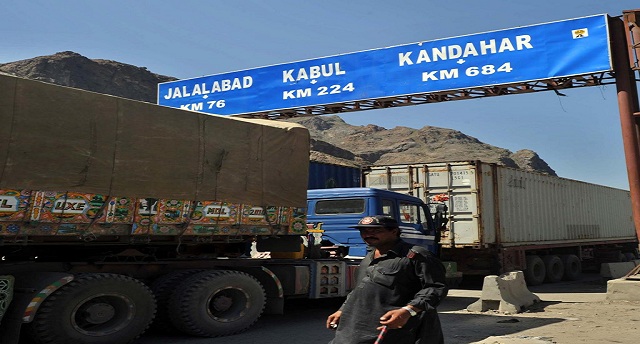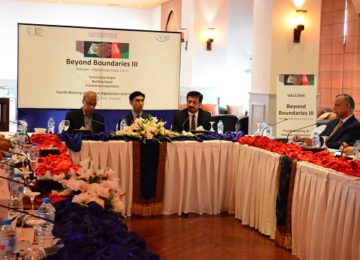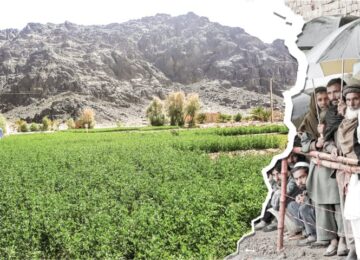December 3, 2019
By Imtiaz Gul

Pakistan’s civil and military bureaucracy tends to hide behind security when justifying its administrative actions against Afghan refugees and traders. Reality is, they often end up acting on key issues with indifference, inaptitude and obstructive approaches, thereby killing businesses and ideas.
Realistic and prospective legislation and regulations – or the absence of it – are manifest in Pakistan’s dealings with Afghan refugees, traders and the regulations surrounding our trade relations.
Every now and then, this policy gives birth to tensions and a negative story on Pakistan.
Let us see how?
A cursory look reveals that after nearly four decades, Pakistani state institutions have miserably failed in providing a decent, mutually beneficial framework for the Afghan refugees and the children born to them (they constitute some 60 percent of total refugee population).
No refugee law thus far, and hence those born here – instead of getting nationality – still face discrimination and harassment as refugees.
Both Pakistan and Afghanistan still don’t have a double taxation avoidance agreement.
Afghans living here or those trading with Pakistan are barred from setting up companies or buying property. Neither can they open bank accounts – forcing them to deal in cash instead – a certain recipe for smuggling and black economy thrive.
Afghan importers are required to pay up in advance for purchases in Pakistan, meaning thereby he Letter of Credit facility is not available to them. This also means depriving the state of legitimate customs’ duties.
Afghan businesses also face uncertainty and delays at Karachi port for their cargo if they refuse to grease palms. They also have to pay higher insurance premiums because the Pakistan Customs places a higher value on their cargo.
Afghan containers – traders complain – are also subjected to unfair and high-handed inspection (to force them into graft). That is why the Afghan transit trade and imports via Karachi have gone down by several thousand containers per year. Much of the cargo has shifted to Chabahar, Iran because of quick clearance and no corrupt practices involved.
An Electronic Data Exchange agreement, Afghan traders say, is already ready but not in force.
Such complaints also resonated at a recent business-to-business (B2B) event in Dubai. Organised by Pakistan Afghanistan Joint Chamber of Commerce and Industry (PAJCCI), the event attracted some 50 businessmen/investors from both sides. Afghan participants identified restrictive visa regimes, tariff barriers, customs regulations and significant procedural/administrative hindrances in the way of safe and speedy transfer of goods between both countries. This leads to various kinds of damages – particularly perishable items – as well as demurrage changes due to delays in clearance at Karachi port.
A damning indictment of the obstructive bureaucracy came recently from the Peshawar High Court, a sad reflection indeed on how dismally Pakistan’s state institutions have failed to devise laws and regulations on ruling on Afghan refugees and their businesses activities.
Ruling on a private petition, the Court comprising Justice Lal Jan Khattak and Justice Mohammad Naeem Anwar has directed ministries of interior, defence, State and Frontier Regions and the KP government through chief and home secretaries to regulate the life and work of Afghan refugees in the country and deport illegal refugees.
The bench, nevertheless, ruled out direct action on the issue, saying only the respondents should take appropriate and legal action under the law against the refugees and their businesses.
The ruling actually calls out all relevant institutions for their inaction and gross indifference to an issue that keeps giving birth to negative stories and leads to occasional tensions in bilateral relations.
“ We should stop frustrating the Afghan counterparts. We have a bundle of complaints from the Afghan side and it is absolutely necessary for Pakistani government to spell out as to whether we are interested in the transit trade at all,” said PAJCCI chairman Zubair Motiwala. Unnecessary delays, ambiguous procedural requirements are hurting both our industrial export to Afghanistan as well as the Afghan transit trade, he pointed out.
Secondly, he pointed out, the banking channels must treat Afghan importers/exporters at a par with those from other countries. Bank Alfalah is ready to help out on the LC issue, if the government permits it.
Some 17% sales tax on textiles, a big export item to Afghanistan, and obstacles in way of refunds of these taxes ( because of cash payments) may shift the Afghan textiles demand to India.
Thirdly, Motiwala pointed out, PAJCCI members can counter Indian lobbying in Afghanistan through smart business but they are constrained by negative consequences of a restrictive and discouraging visa regime.
The bilateral trade, the traders pointed out, could soar to $ 7 billion if the environment were enabling and free of politics.
Quite strange that countries world over welcome funds from abroad – hardly asking about the sources of funding. But in Pakistan, the civil-military bureaucracies are pursuing policies that have, and are, hounding Afghan traders and importers.
Officials simply don’t take into account the negative consequences of their policies for the country.
The visa section in Pakistan’s embassy in Kabul has, for example, been closed for nearly month after harassment of our diplomats.

The cost of this decision on business is enormous; no visa means several thousand Afghans – small businessmen, vendors, patients, students, family relatives – are unable to travel to Pakistan. And this means denial of potential revenues to hospitals, educational institutions, transporters. Peshawar’s hospitals have already over half of their revenues since Pakistan introduced compulsory visa in June 2016.
It is about time for civil bureaucracy and the military establishment to start looking at these issues through the economic prism through a cost-benefit analysis. They will keep bruising the image of Pakistan as well as hurting national economic interests if they continued masking their inaction and indifference with lame security concerns.
The author is the Executive Director of the Center for Research and Security Studies (CRSS).
Originally published in Matrix Magazine.








